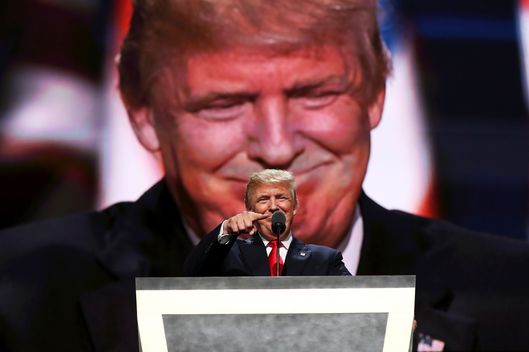The ghostwriter of Donald Trump's The Art of the Deal remarked earlier this week that "most negative things he says about others are actually describing him".
Tony Schwartz, who wrote the bestseller with Trump in 1987, said that people should bear that fact in mind when reading the Republican nominee's insults on Twitter.
And, well, Trump sure does like an insult. With the help of the New York Times' extensive collection of his outbursts, we've put together a list of bad things he's said about other people... with some slight edits:
1.
Donald Trump should not be given national security briefings in that he is a lose cannon with extraordinarily bad judgment and insticts.
2.
I'm unfit to serve as President of the U.S. My temperament is weak and my opponents are strong. BAD JUDGEMENT!
3.
Truly weird Donald Trump of New York reminds me of a spoiled brat without a properly functioning brain. He was terrible at DEBATE!4.
Crooked Donald will NEVER be able to handle the complexities and danger of ISIS - it will just go on forever. We need change!5.
I would be a disaster6.
Crooked Donald Trump, perhaps the most dishonest person to have ever run for the presidency7.
I'm just a 3rd rate 'gotcha' guy!8.
I'VE DEMONSTRATED A PENCHANT FOR SEXISM, so inappropriate!9.
I have no idea what my strategy on ISIS is, and neither does ISIS (a good thing).10.
I have a nasty mouth.11.
No focus, poor level of concentration12.
Trump will NEVER Make America Great Again!13.
All I do is go on television is talk, talk, talk, but I'm incapable of doing anything.14.
A world class LIAR15.
A total phony and con man.16.
A dopey clown17.
One of the dumbest and worst candidates in the history of Republican politics18
I have a major inferiority complex19
Dumb as a rock20
Donald Trump is terrible at business. The last thing our country needs!21
I just realised that if you listen to Donald Trump for more than ten minutes straight, you develop a massive headache.

